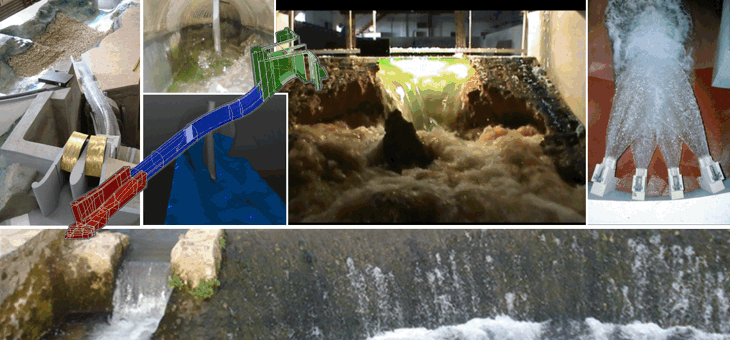 Hydraulics and Environment Department
Hydraulics and Environment Department
 Maria Teresa Viseu
Head of Unit / Principal Researcher
Maria Teresa Viseu
Head of Unit / Principal Researcher
Presentation
|
The Water Resources and Hydraulic Structures Division (NRE) is a research unit of LNEC's Hydraulics and Environment Department that undertakes, since 1951, research and technological development (R&D) in the field of hydraulic structures and of river and aquifer systems, integrated at the river basin scale. The division also provides advanced technical consultancy services, aiming at solving specific problems, both at national and international levels. NRE has an experienced and multidisciplinary team and its activity is continuously developed in close dialogue with partners and customers. NRE strategic research is focused in the following thematic areas:
The applied methodologies include numerical modelling, in situ and laboratory modelling, field monitoring and infrastructure inspections, as well as studies and expert analyses. Numerical modellingin hydrology and hydrogeology (water balances, rainfall-run off, flood forecasting, droughts duration and intensity) as well as river hydraulics (flow and sediment transport), water quality in rivers,reservoirs and aquifers, water resources management and flow behavior in hydraulic structures. In situ, physical and experimental modelling for characterization of the flow over spillways and in hydraulic circuits, flow and pollutant transport in porous aquifers, fluvial dynamics (flow in alluvial and compound rivers beds, reservoirs sedimentation, scouring in alluvial bridges foundations and downstream of hydraulic structures), flood protection and river rehabilitation and requalification (fish passages and other measures). Monitoring, evaluation of field parameters and treatment of basic information involving measurement and sampling techniques, methodologies of hydro-meteorological data acquisition and processing as well as development and implementation of statistical tools. Inspections and expert analysis concerning the performance, safety and maintenance of hydraulic structures and equipment. |





